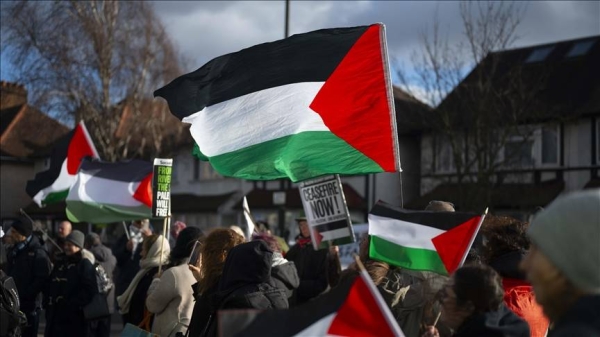Norway and Israel in diplomatic row over Palaestine recognition
Since Oslo’s decision to recognize Palestine as a state, which attracted harsh criticism from Tel Aviv, which retaliated with a slew of actions against the Nordic nation and Palestinians, the two countries have been at odds for months. Most recently, due to the decision made in late May, Israel reportedly withdrew and cancelled some bank deposits in Norwegian banks and revoked the accreditation of Norwegian diplomats working with the Palestinian Authority.

The Norwegian Foreign Ministry stated in a statement on Thursday that it had received word today from the Netanyahu government that it would no longer support Norwegian diplomats’ operations in the Palestinian territories. “This is an extreme act that severely impacts our ability to assist the Palestinians. Israel’s decision to revoke the diplomatic status of members of our embassy is an extreme measure and will have consequences,” the ministry said, adding that it was assessing possible responses to the situation “created by the Netanyahu government.”
Israel, for its part, said that the action followed a “flurry of anti-Israeli and unilateral steps” taken by the Norwegian authorities.
The ambassador of Norway was called, according to a statement from the nation’s Foreign Ministry, and told that their visas would be withdrawn in three months and their accreditation would be canceled in seven days.
Norway recognized Palestine as a state last May, following in the footsteps of Spain and Ireland. In June, Slovenia and Armenia did the same. Israel, incensed by the recognitions, threatened to retaliate against these nations. Norway maintains a representative office in Ramallah, a city in the West Bank. To get there, though, its diplomats had to go past Israeli checkpoints in the West Bank. Prior to the official acknowledgement, Prime Minister Jonas Gahr Store in May highlighted the need to maintain prospects for a two-state solution.
“In the midst of a war, with tens of thousands killed and injured, we must keep alive the only alternative that offers a political solution for Israelis and Palestinians alike: Two states, living side by side, in peace and security,” Store had said. Nonetheless, late in June, the Israeli War Cabinet adopted measures put up by Finance Minister Bezalel Smotrich with the intention of “legalizing” settlement outposts in the West Bank and putting the Palestinian Authority under sanctions.
According to KAN, the official broadcaster of Tel Aviv, Smotrich’s strategy to challenge Palestinian statehood recognition and legal measures against Israel in international tribunals was accepted by the Security Cabinet. Beginning in early July, the far-right minister vowed to create a new colony for every nation that acknowledged Palestine as a state. A few days later, Espen Barth Eide, the foreign minister of Norway, requested a visit, but Israel’s Foreign Minister Israel Katz rejected it.
Since Oslo has recognized a Palestinian state, refused to designate Hamas as a terrorist group, and supported South Africa’s complaint against Israel in The Hague,” the news website Times of Israel stated. In the occupied West Bank and Gaza Strip, the Palestinians aspire to build an independent state; Israel objects to this.
The creation of a Palestinian state was rejected by the Knesset, the Israeli parliament, last month on the grounds that it posed a “existential threat” to Israel. The International Court of Justice ruled on July 19 that Israel’s long-standing occupation of Palestinian land is “illegal” and that all settlements in the West Bank and East Jerusalem must be evacuated. This ruling was a historic ruling.


Comments are closed, but trackbacks and pingbacks are open.